When you’re diving into the world of fitness supplements, the question often pops up: does creatine cause hair loss? After all, we all aim to pack on muscle and get shredded without sacrificing our glorious locks. Creatine has established itself as a powerhouse in athletic performance, muscle growth, and rapid recovery. However, in the backdrop of this performance enhancer looms a myth that haunts many gym-goers: could it actually lead to hair loss? Let’s peel back the layers and dish out the facts you must know.
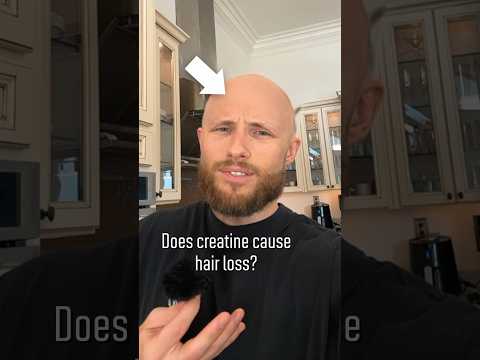
Understanding Creatine and Its Popularity in Fitness
Creatine, a naturally occurring compound found in the body, is primarily concentrated in your muscles. It’s a critical player in the production of ATP (adenosine triphosphate), your muscle’s primary energy source during high-intensity activities. Over the years, it’s become one of the most extensively studied dietary supplements, glorified not just for muscle gains but also for its role in improving athletic performance.
In the gym, users typically praise creatine for its ability to boost strength, endurance, and recovery times. It’s as if you’ve become a superhero on the weights! However, with growing popularity, the rumors regarding its potential side effects have surged, especially regarding hair loss. Understanding how creatine works and addressing those claims is pivotal when considering your fitness journey.

The Top 5 Myths About Creatine and Hair Loss
1. Creatine Directly Causes Hair Loss
This myth often springs from the increased focus on DHT (dihydrotestosterone), a hormone tied to hair loss. Some studies hint at a mild uptick in DHT levels post-creatine supplementation. Still, it’s crucial to note that there’s no solid evidence linking creatine directly to hair loss. The connection remains ambiguous.
2. All Creatine Forms Increase Hair Loss Risk
There’s a plethora of creatine forms out there, like creatine monohydrate, creatine ethyl ester, and others. Research indicates that the risk of hair loss isn’t tied to the specific type of creatine you pick, but rather how your body responds to the supplementation. So don’t let the hype confuse you!
3. Athletes Experience Hair Loss from Creatine Use
There’s a narrative that connects athletes with hair loss due to creatine, but let’s debunk that! Take NFL stud Rob Gronkowski; he’s publicly expressed his use of creatine while maintaining his thick mane. The truth is, individual genetics play a massive role in hair health, not the supplement itself.
4. Creatine Usage and Increased Testosterone Levels
Some argue that creatine plays a role in boosting testosterone and, consequently, raises DHT levels. However, while there’s some evidence for fluctuations in hormonal levels with creatine, significant increases in testosterone have not been universally observed. Hormonal responses vary widely, meaning it won’t be the same for everyone.
5. It’s the Dosage of Creatine That Matters
Sure, high doses of any supplement can stir up potential side effects, and creatine is no exception. The standard recommended dose is about 3-5 grams per day, and it’s widely regarded as safe. Critics often point fingers at high doses causing a slew of issues—even kidney damage—but in practical terms, this isn’t closely linked to hair loss. The spotlight over hair health should fall on how your body responds to various supplements rather than the amount alone.
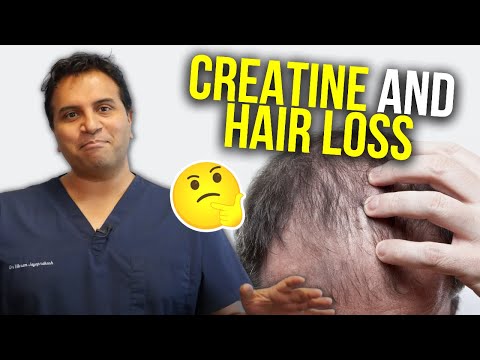
Real-World Insights Into Creatine Use and Hair Loss
When seeking the truth about whether creatine causes hair loss, anecdotal evidence can sometimes feel just as potent as rigorous studies. Many fitness enthusiasts congregate on forums like Reddit’s r/Fitness, sharing personal tales of their supplement journeys. You’ll encounter users who swear creatine caused their hair to thin, while others share their hair is thriving!
A foundational study from 2009, published in the Clinical Journal of Sport Medicine, noted slight increases in DHT after creatine loading. But here’s the kicker—hair loss in participants wasn’t directly measured. While many studies focus mostly on performance, there’s still a gap in research regarding the broader implications for hair health.
More recently, insights from health professionals have shed light on this ongoing debate. According to industry experts, most people without a genetic predisposition to baldness likely won’t experience hair loss from creatine use. So if you’ve got the genes working for you, rest assured, creatine’s not your enemy!
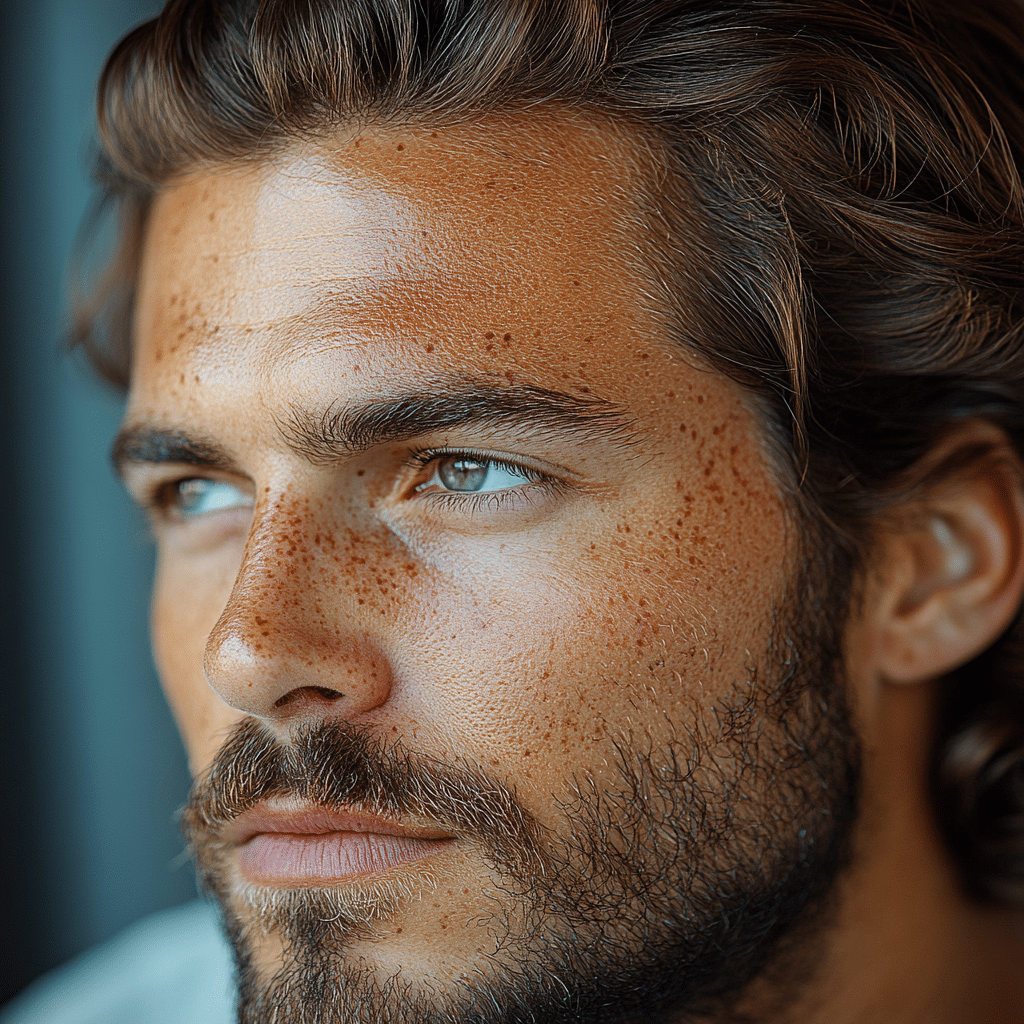
The Role of Genetics in Hair Loss
The conversation about hair loss wouldn’t be complete without mentioning genetics. For many people, the risk of male and female pattern baldness is rooted deeply in their DNA. Those with traits linked to androgenetic alopecia are prone to hair loss regardless of their use of supplements like creatine.
Understanding your genetic background can provide more clarity than worrying about creatine. If you’re concerned about hair loss, consider consulting a healthcare professional—they can offer insights tailored to your unique genetic makeup.
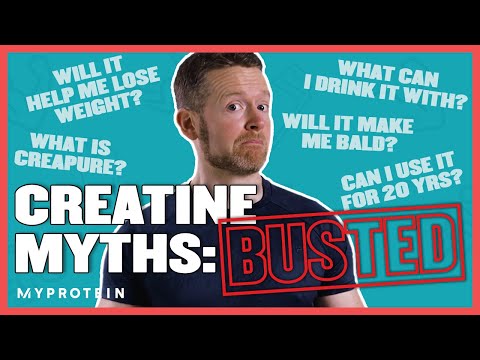
Alternative Factors Affecting Hair Health
Let’s not sidestep the plethora of other factors impacting hair health while we debate creatine’s role.
Diet and Nutrition: It’s essential to focus on a balanced diet rich in essential vitamins and minerals. For instance, iron and zinc deficiencies can cause hair loss too severe that no supplement can save you, regardless of creatine intake.
Stress and Overall Well-Being: High stress can still be a significant player when it comes to hair health. If you’re hitting the weights hard but feeling mentally drained, this could play a role. Prioritize mental health along with your fitness goals!
Medications: Certain drugs can also contribute to hair loss, so it’s worthwhile to evaluate your overall health profile before placing any blame solely on creatine.
Navigating the Myths: Practical Takeaways
When it comes to creatine and hair loss, here’s how to keep your head clear (and full of hair):
Embracing a Well-Rounded Perspective
The link between creatine and hair loss is a convoluted topic filled with myths, anecdotal claims, and limited scientific research. While some may fervently believe that creatine causes hair loss, the reality is that genetics and lifestyle play much more significant roles in hair health. Embracing a well-rounded, holistic approach to fitness ensures that you can build muscle, improve performance, and, more importantly, keep your hair looking fabulous! So fare thee well to the myths, and step into the light of informed choices. It’s time to get shredded, gain muscle, and keep those locks healthy!
In the immortal words of Arnold Schwarzenegger, “You can’t climb the ladder of success with your hands in your pockets!” So go out there, lift those weights, and remember: your well-being is your greatest asset!
Does Creatine Cause Hair Loss? Myths and Facts You Must Know
Busting Myths
When athletes and gym buffs hear the phrase ‘does creatine cause hair loss,’ there’s a whirlwind of myths and assumptions they might toss around. It’s essential to sift through the noise. While some individuals worry that creatine could lead to hair thinning, research hasn’t definitively correlated the two. Interestingly, factors like genetic predisposition often play a more significant role in hair loss than creatine supplementation. Fun fact: did you know that pushing yourself to try different exercises—like the decline push up—can( not only build muscle but also improve overall health?
The Real Science Behind Creatine
So, does creatine cause hair loss? Science suggests that the supplement might slightly increase dihydrotestosterone (DHT) levels in some individuals. DHT is a hormone linked to hair loss in those predisposed to androgenetic alopecia. Yet, the effect is minimal and not conclusive. And speaking of minimal effects, have you checked out Season 3 Of Ginny And Georgia? It showcases how even small changes in plot can lead to substantial character development, much like how minor adjustments in our workout routines can lead to body changes.
Balancing Your Fitness Routine
While it’s wise to consider the impacts of any supplement, balance is key. Your fitness routine should be comprehensive, including compound movements like the cuban press to target not just muscle but overall fitness. Moreover, hair health can also benefit from a well-rounded diet and lifestyle habits—investing time in nutrition often pays off. Before you get ahead of yourself, if you’re considering a major financial commitment—like buying a new home—you might be wondering How To get Pre-approved For a home loan. Life’s about balance, right?
Final Thoughts
At the end of the day, whether you’re a fitness fanatic or just dabbling in strength training, it’s crucial to focus on solid information. Creatine isn’t a villain in your hair storyline; instead, it’s merely a supplement that can help with performance when used correctly. Curious about celebrity debuts? Actor Randall Park ‘s versatile roles often remind us that versatility, whether in fitness regimens or entertainment, leads to success. And as for popular culture, there’s always room for fun tidbits, like whether Dora will give a kiss in her new adventure—check out the buzz around the Dora kiss.
In conclusion, questions about whether or not does creatine cause hair loss often boil down to individual health and genetics. So keep your workouts fun and varied, explore new trends, and most importantly, stay informed! Curious about more topics? You can even check out the latest on Alice Eve ‘s movie list while waiting for your next gym session!
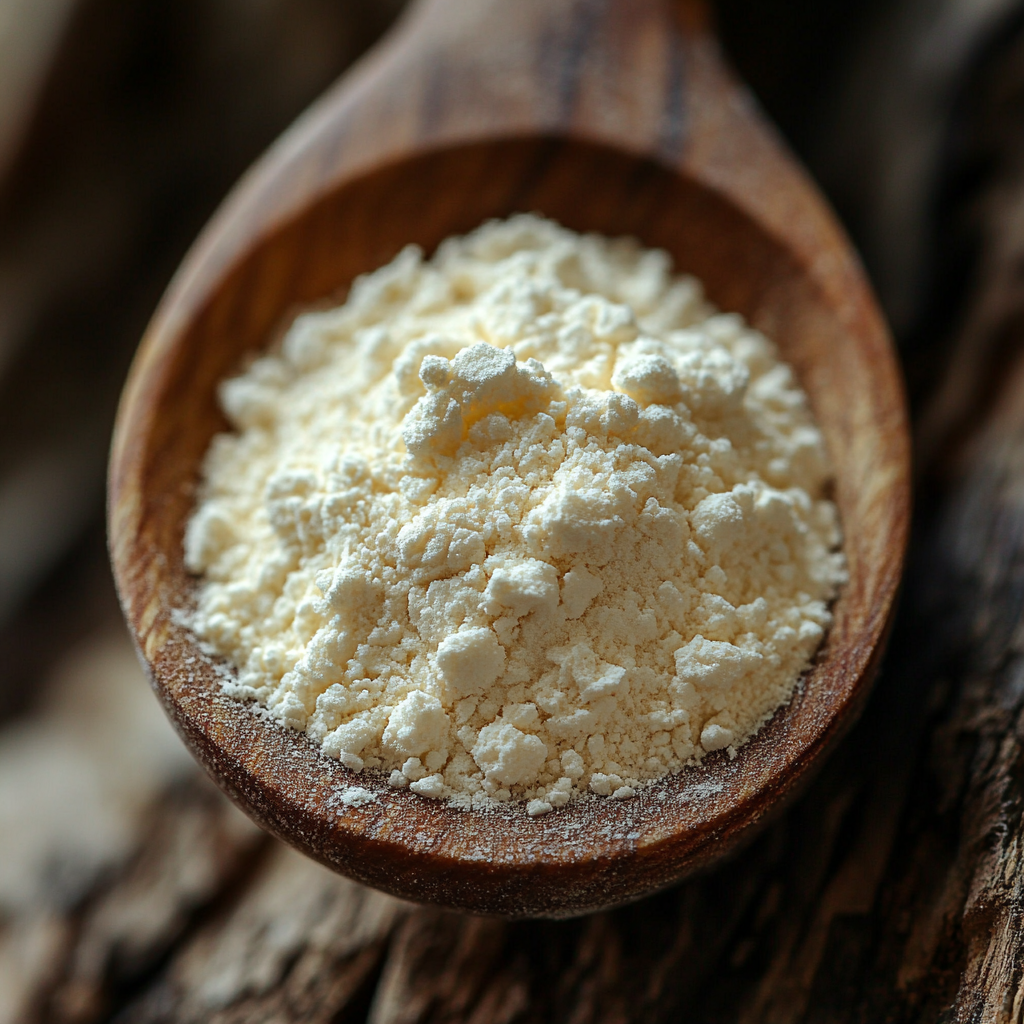
Does creatine cause hairloss?
Most people who take creatine don’t experience hair loss, especially if they don’t have a family history of baldness. If you’re worried, it’s best to chat with a healthcare professional.
Does hair grow back after creatine?
If hair loss happens while on creatine, it should grow back once you stop using it. However, if it’s linked to a genetic issue, you might need a special treatment for regrowth.
Is creatine good for your hair?
Creatine doesn’t directly help or hurt hair health. While some studies link it to increased DHT levels, which can affect hair growth, there’s no solid evidence leading to baldness for everyone.
Are there negatives to taking creatine?
Taking high doses of creatine can come with some risks, like kidney damage, and might hinder your body’s ability to produce its own creatine, so it’s wise to stick to recommended amounts.
Does creatine affect testosterone?
There’s no strong proof that creatine increases testosterone levels. If you’re concerned about testosterone, it’s a good idea to talk to your doctor.
How to block DHT?
To block DHT, you can look into certain medications or lifestyle changes, but it’s always best to consult with a healthcare provider for the right approach.
Are creatine gains permanent?
Creatine gains can diminish after you stop taking it, as your body will gradually return to its pre-supplementation state.
Does testosterone cause hair loss?
Testosterone itself can lead to hair loss in those genetically predisposed, but it doesn’t affect everyone in the same way.
Does creatine affect sleep?
Creatine shouldn’t negatively impact your sleep, but individual responses can vary, so listen to your body and adjust if needed.
Is creatine OK to take everyday?
Taking creatine daily is generally fine for healthy individuals, but as with anything, moderation is key.
Who should not take creatine?
People with kidney issues, pregnant women, or those taking certain medications should avoid creatine unless advised otherwise by a doctor.
Will my muscles shrink if I stop taking creatine?
When you stop taking creatine, your muscles might shrink a bit since they’ll lose the extra water retention and some muscle gain, but proper training and nutrition can help maintain strength.
How much water should I drink with creatine?
Staying well-hydrated is crucial with creatine; drinking around 64 ounces (about 2 liters) of water a day is a good rule of thumb.
Is creatine bad for fatty liver?
Creatine isn’t considered harmful for fatty liver, but if you have liver issues, it’s best to consult a doctor before starting any supplementation.
Is creatine good for your brain?
Creatine can have positive effects on brain health, including improving memory and mental performance during physical activity.
Is creatine safe long term?
When taken as directed, creatine is generally safe for long-term use, but regular check-ins with a healthcare provider are a good practice.
Does high testosterone cause hair loss?
High testosterone levels can contribute to hair loss for some folks, especially if they have a genetic tendency toward baldness.
Does creatine cause fat loss?
While creatine may help with fat loss indirectly by improving workout performance, it isn’t a fat-burning supplement in itself.
Is creatine weight gain permanent?
Weight gained from creatine is usually temporary and tied to water retention; once you stop, that added weight often goes away too.


























